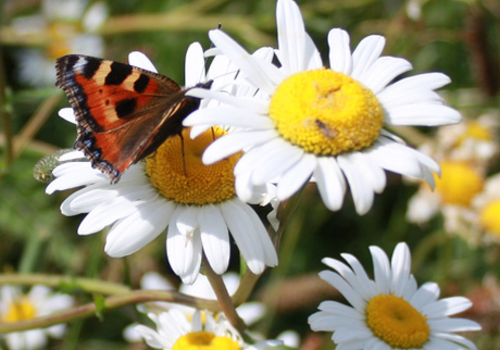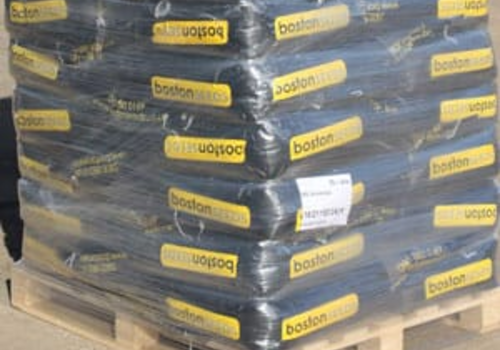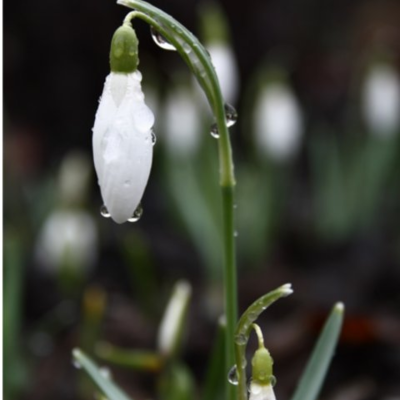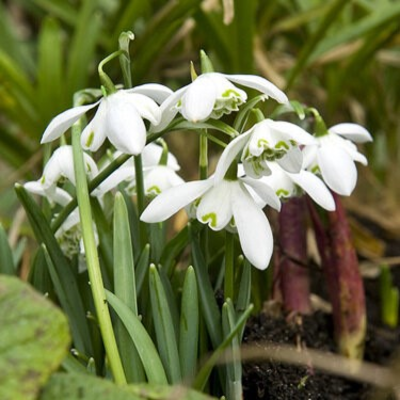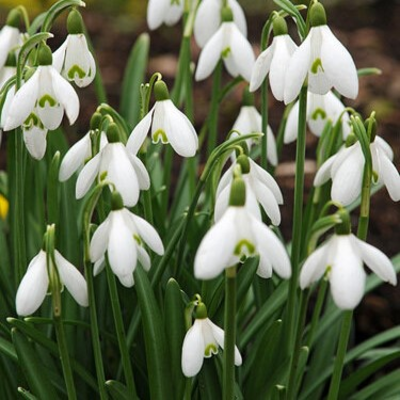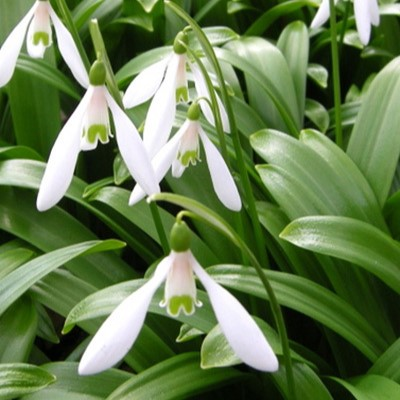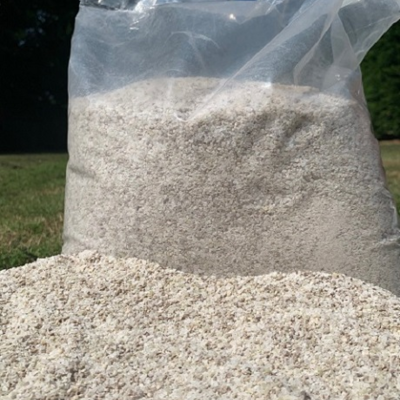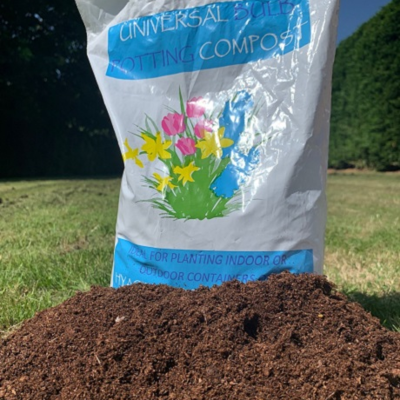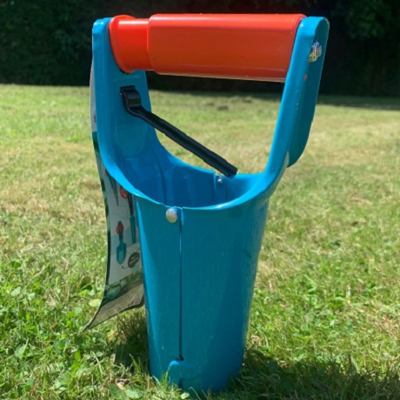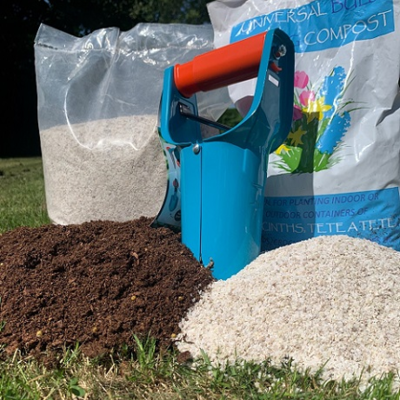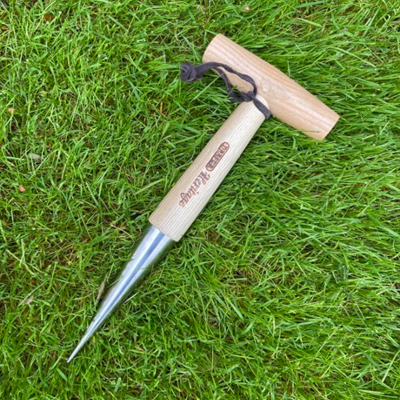Snowdrop Bulbs
Snowdrop flower bulbs will be available to order from spring 2025 for delivery and planting in autumn 2025.
Snowdrops will add beautiful splash of colour to your garden in late winter and early spring, with blooms as early as January.
Our autumn planted wildflower bulb range is available seasonally so if your favourite wildflower isn’t in season yet, visit our range of Spring-Planted Wildflower Bulbs.
Don't hesitate to get in touch to speak to one of our experts or request a catalogue to view our full range. Ordering regularly or looking for large volumes? Click here to apply for a trade account today - we review all applications within one working day.
'The Common Snowdrop'
Galanthus nivalis snowdrops are very widespread and produce a clump of small, beautiful flower heads. The Royal Horticulture Society has awarded Galanthus nivalis with the Award of Garden Merit for outstanding excellence.
- Flowers: February-March
- Height: 10-20cm.
- Bulb size: 4/5cm
- These snowdrops bulbs are UK native
This item is currently unavailable
This naturally occurring double form of our native snowdrop is just as easy to grow, often flowering a little earlier than its single-flower counterpart. It can grow to a similar height and produces attractive flowers between January - March.
- Height: 10-20 cm
- Flowers: January-March
- Bulb size: 4/5cm
- These snowdrop bulbs are UK native
This item is currently unavailable
'The Giant Snowdrop'
Elwesii are giant-flowered snowdrops with honey-scented blooms, that will flower in the first year.
- Height: 30cm.
- Blooms: January-February
- Bulb size: 4/5cm
- These snowdrops are UK grown from passported stocks
This item is currently unavailable
Formerly known as Galanthus ikariae.
Woronowii are small delicate flowers that are almost completely white.
- Height: 20cm.
- Blooms: February
- Bulb size: 5/6cm
- These snowdrops are UK grown from passported stocks
This item is currently unavailable
Our flowering bulb fertiliser has been specifically designed to help your spring-flowering bulbs flower to their full potential. Whether you are establishing in pots or containers, sprinkle a small amount into each hole prior to planting your bulbs. Also suitable for use in early spring to encourage your bulbs to flower well in the following season.
- Tailored to give your bulbs all the nutrients they need
- Can be mixed with compost or Bulb Fibre
- NPK - 12.11.18 + MgO
- Recommended coverage: 5kg per 200sqm. Apply at 25g/sqm
- Not suitable for use with Wildflower Bulbs
This item is currently unavailable
Specifically designed to help bulbs establish in pots and borders, without the risk of the bulbs rotting, providing an open and free-draining soil structure.
- Ideal for planting with Narcissi, Crocus, Hyacinths and other spring-flowering bulbs
- Universal bulb planting fibre
- 500gm bag - This pack is sufficient for 3 x 1-litre pots
This item is currently unavailable
Making bulb planting easier, quicker and cleaner, our bulb planter is the ideal tool for helping you plant your larger spring-flowering bulbs.
- Made of high quality steel
- Automatic release on handle
- Duroplast coating - impact, elastic, abrasion, and corrosion resistant
- Perfect for planting larger flower bulbs such as daffodils, tulips, alliums, hyacinths and more
Our bulb planting essentials pack has been put together for the ease of ensuring quick planting and a great display. The bulb planter will help you plant the bulbs with ease whilst the fibre will ensure the bulbs do not rot when planted into pots or containers. Using the bulb fertiliser will ensure your bulbs have all the nutrients they need whilst establishing.
- 1 x Bulb Fibre
- 1 x Bulb Planter
- 1 x Bulb Fertiliser
This item is currently unavailable
The ultimate tool for planting quickly and easily your plants and bulbs. A quality, solid ash handle securely fitted to a stainless steel blade, the traditional design is ideal to assist in planting your plants and bulbs into beds, borders and grassland.
- Made of high quality polished stainless steel
- Ash handle - sourced from a sustainable source
- Soft leather strap - ideal to hang up
- Perfect for planting wildflower plug plants and small bulbs such as snowdrops, bluebells, crocus and more
Snowdrops: How to grow them (and why!)
These small, droopy white flowers are a highly popular pick for British gardens, and for a good reason: they’re one of the earliest bulbs to bloom at the tail end of winter and a sure sign that spring is on the way; a welcome sight, no matter how simple they seem on the surface. Though their popularity means a lot about the snowdrops are common knowledge, it’s also surrounded by intriguing folklore. And if by chance you aren’t familiar with snowdrops yet… there’s no better time to introduce you to them and get them growing in your garden!
Fun Facts
Many flowers have myths or folk tales about why they may have came from and what they mean. I myself grew up with one such story- an adaptation of the Russian folk tale of the Snow Girl. In this tale, an old Russian couple build a child out of snow, only for it to magically come to life. The version I remember reading ends with the Snow Girl roaming freely in the forests, leaving a trail of snowdrops at her feet; this seems to be a bit of an obscure tale, however, so don’t take my word for it.
Another story suggesting the creation of snowdrops is based in Christianity: supposedly, the first snowdrops were grown by an angel who took pity on Adam and Eve as they struggled to survive the first winter outside the Garden of Eden. The flower was gifted to them as a sign of hope- a meaning that still applies to the flower today, since it’s a sign that brighter days are coming soon. In addition, snowdrops are associated not only with the Christian festival of Candlemas- decorating churches during the celebration- but also has ties to certain Pagan traditions and festivities, including St. Brigid’s day, from which we get our concept of ‘Spring Cleaning’!
How to Grow
To go along with their unusual blooming time, snowdrops also have a highly unusual planting time: they can be planted when 'in the green' during January-March or in the autumn as dry bulbs- September onwards. They require moist, but well-drained soil and partial shade- snowdrop bulbs are prone to drying out, so keep an eye on them and water them whenever necessary. Once they’re established, however, they’re just about ready to keep going for years!
Plant 10cm deep and space apart 5cm, otherwise they can be planted in clumps for a great visual display. As they flower so early, snowdrops do not rely on pollinators to reproduce. Instead, they spread via bulb division. Make sure to separate established clumps every few years to prevent overcrowding.
Species & Styles
Really, how much variation can exist in one tiny, droopy white flower? A lot more than you’d realise! Numerous cultivars have been given awards by the RHS for their pleasing shape or a strong, honey-like scent: the ’S. Arnott’ in particular has both, with large (3cm long), bulbous petals which flare out beautifully in the winter. In a similar vein, the Galanthus ‘Magnet’ has unique, wide-blooming petals that are almost completely horizontal- in a group together, they almost look like a flowery flock of birds in flight!
As small, white flowers, snowdrops are a versatile flower for planting in beds and borders; the aforementioned ’S. Arnott’ is also noted as an excellent cut flower. But really, there’s no other way to plant snowdrops than in drifts together, perhaps with some daffodils to bloom later, as a cute floral countdown to see you into springtime!
Buy With Confidence

